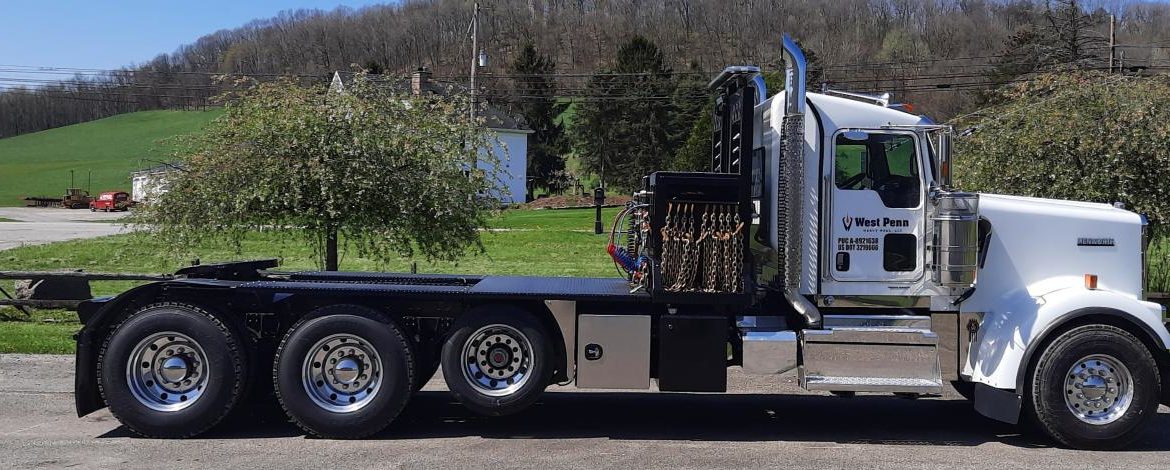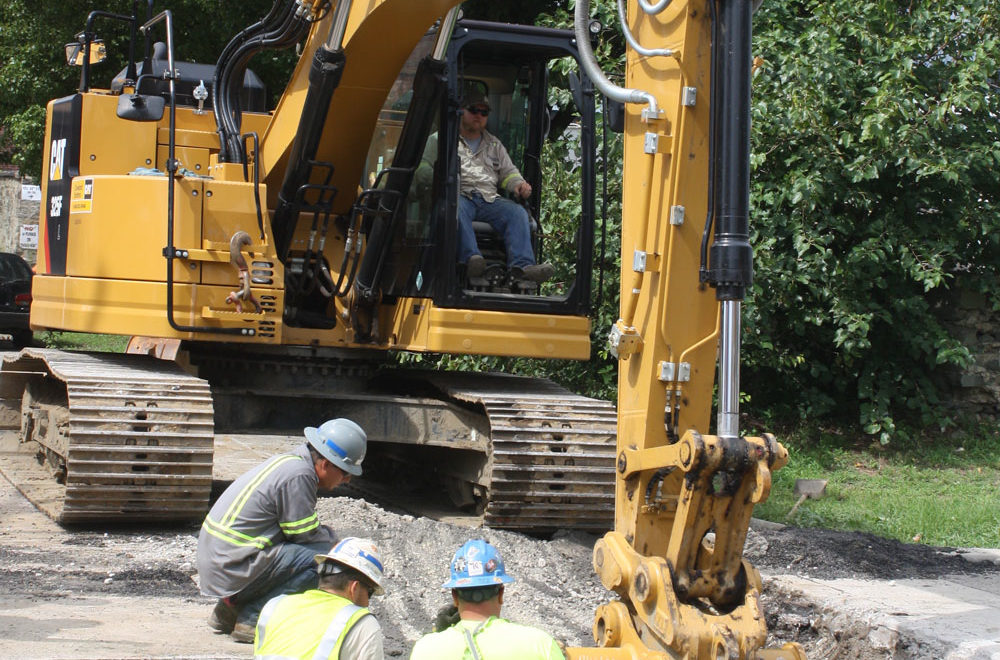West Penn Heavy Haul expands to meet rising demand for rig moves
Being the market leader for moving rigs and oil field equipment in the Appalachian Basin means there is heavy demand for our services.
To meet that demand, West Penn Heavy Haul recently hired more staff and purchased new vehicles to better serve our customers as the natural gas market booms.
We are pleased to welcome about a dozen new team members – including swampers, loader operators and truck pushers – who are seasoned veterans in our specialized industry. Their experience allowed them to jump right in and provide quality services to customers in Pennsylvania, Eastern Ohio and Northern West Virginia. Many of these professionals live in or near West Virginia, increasing our ability to quickly assemble teams for work in that area.
Our fleet grew to include a new Kenworth winch truck. Two other winch trucks will be delivered soon, along with a 5-axle lowboy trailer. They complement our existing fleet of trailers, winch trucks, pole trucks, cranes, loaders and other heavy equipment.
These additions allow West Penn Heavy Haul to significantly expand our services, including the capability to move multiple rigs simultaneously.
There is a reason so many oil and gas companies trust West Penn Heavy Haul to move their rigs. Our dependable team has a reputation for transporting multi-million equipment safely and efficiently, over difficult terrain, in all weather conditions. No move is too challenging for our experts. We take pride in developing creative solutions for any need.
Contact us to see how we can serve you on your next move.



